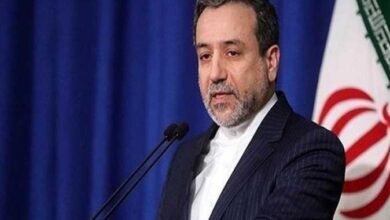Egyptian activists are lending their support to a planned protest in Washington, DC, which US activists hope will become an open-ended sit in modeled on the Tahrir Square protests that helped bring down former President Hosni Mubarak.
The demonstration, which is being organized under the banner “human needs not corporate greed,” will be held on 6 October, on the eve of the 10th anniversary of the start of the US occupation of Afghanistan and as the recently passed US budget takes effect.
Egyptian activists plan to hold a concurrent protest in Tahrir Square.
A pledge on October2011.org, the website of the coalition organizing the protests, says that protesters will commit to maintaining a sit in as long as any “US troops contractors, or mercenaries remain in Afghanistan.”
Statements from the organizers say that the protest will also address issues of social, environmental and economic justice. The focus of the protest is the US federal budget, which has been a contentious issue in recent months as the US congress prepares to impose new austerity measures.
The website says protesters have “the intention of making it our Tahrir Square.”
Egyptian and US activists released on 21 September a “statement of solidarity” between “Egyptian revolutionaries and October2011.org participants.”
“While our nations face many different challenges and remain thousands of miles and cultures apart, we find that we share many of the same concerns within our respective countries,” the statement says in English and Arabic.
The statement has the support of several Egyptians, including veteran activist Alaa Abd El Fattah and Asmaa Mahfouz, a blogger and activist who was recently detained by the military for comments she made on Facebook and Twitter, and others.
American signatories include noted dissident Noam Chomsky and writer and thinker Chris Hedges, a former Middle East bureau chief for the New York Times, as well as many other progressive activists.
US organizers hope that the statement of solidarity will help build momentum.
“Everybody in America dreams of the day when 100,000 people rush onto Freedom Plaza [in Washington, DC] and demand change from their politicians,” says Matthew Cappiello, a political activist who is part of the coalition organizing the 6 October protest. “A lot of these protest movements [in the US] need a kick in the pants. We haven’t been able to captivate the eyes of average Americans.”
Cappiello says, “Just as the American and international media can help protest movements in the Middle East, American protesters also need help from around the world.”
The statement of solidarity lists four points of agreement: The people of the US and Egypt both require real democracy that represents the views of the people; US foreign policy must stop undermining the Egyptian democracy movement; both countries need to end the wealth divide and create “sustainable economies for the 21st century”; and both countries need to respect human rights, including ending torture.
Activists are also using the joint statement to raise issues concerning US aid to Egypt. Eighty-five percent of US funding for democracy and governance programming has gone to US-based NGOs, something Cappiello called “unacceptable.”
Abdallah Helmy, a founding member of the Revolution Youth who signed the statement and has been coordinating with US activists for over five months, believes that this is an important opportunity for not just Egyptian or US activists, but forces of change around the world.
“We need to send governments a message,” Helmy says. “We can connect networks around the world. We have common goals, common views and common causes.”
“We are changing the concept of international relations, making it civil society to civil society, not through governments or ordinary channels.”




